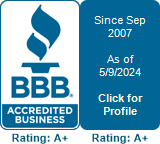Estimated Tax Payments - Some Answers to Your Questions
- By Admin
- •
- 15 Dec, 2020
- •
Are you self-employed, a partner, or an owner of a business? If so, one of the most important tax tasks you must accomplish each year is to pay estimated taxes. What are estimated taxes? Why should you be concerned with them? And how do you know what to pay? Here's an introduction to estimated tax payments for the beginner.
What Are Estimated Taxes?
Estimated tax payments are the arrangement by your state income tax agency and the IRS to make payments toward your tax bill throughout the year. Most wage earners and salaried workers have a portion of their projected tax bill withheld from each paycheck. However, because a self-employed worker, partner, or business owner isn't subject to withholding, they must send in payments on a regular basis instead.
Why Should You Pay Estimated Taxes?
Estimated taxes are an additional burden for self-employed persons and business owners and can be complex to figure out. So why should you concern yourself with them? First, it is mandatory. The IRS, for instance, sets rules to let you know payment deadlines, how much of your estimated tax bill is due each quarter, and what percentage of last year's tax bill you must pay.
Perhaps just as importantly, estimated taxes help you avoid a huge tax bill in the spring. The goal is usually to have paid your obligation in more manageable portions throughout the year and have little or no additional tax due when you file your returns. Meeting this goal also avoid penalties and fines for underpayment, which may be quite large depending on your income.
What Are the Guidelines for Estimated Taxes?
If you are subject to them, an estimated tax payment is due once per quarter. The normal due dates are April 15, June 15, September 15, and January 15. You pay an equal percentage of your estimated annual tax bill with each payment unless you have other sources of withholding. However, certain cyclical businesses or new businesses can sometimes use different schedules based on when they earn income.
Each state has its own rules regarding when to pay estimated taxes for state income taxes. North Carolina, for instance, usually follows the payment schedule set by the IRS.
How Can You Calculate Estimated Taxes?
Most people need help with calculating their estimated tax liability. It can be difficult to project what you may earn either as a self-employed person or as a business, especially when new at it. Generally, you must pay at least 90 percent of the current year's tax or 100 percent of the prior year's tax (if applicable) over the course of the year. It may be recommended to overestimate your bill rather than underestimate it.
The amount of your estimated tax payments is affected by some other forms of tax payments. If you or your spouse on a jointly-filed return have withholdings from another job, this may reduce how much you need to pay in estimated payments. You may also apply overpayments from the prior year as well as overpaid FICA if you have two jobs. You can also make additional voluntary payments at any time.
Where Can You Get Help With Estimated Taxes?
Does this sound confusing to you? If so, you're not alone. Figuring estimated tax payments and executing them can require calculations and forecasting. The best way to do this is by consulting with an experienced accountant. They will work with you to ensure you meet your minimum obligations while avoiding unnecessary overpayments. And they may offer a reminder service to ensure you don't miss a payment.
Williams and Associates Tax Services can help. Call today to make an appointment with a member of our qualified team.










